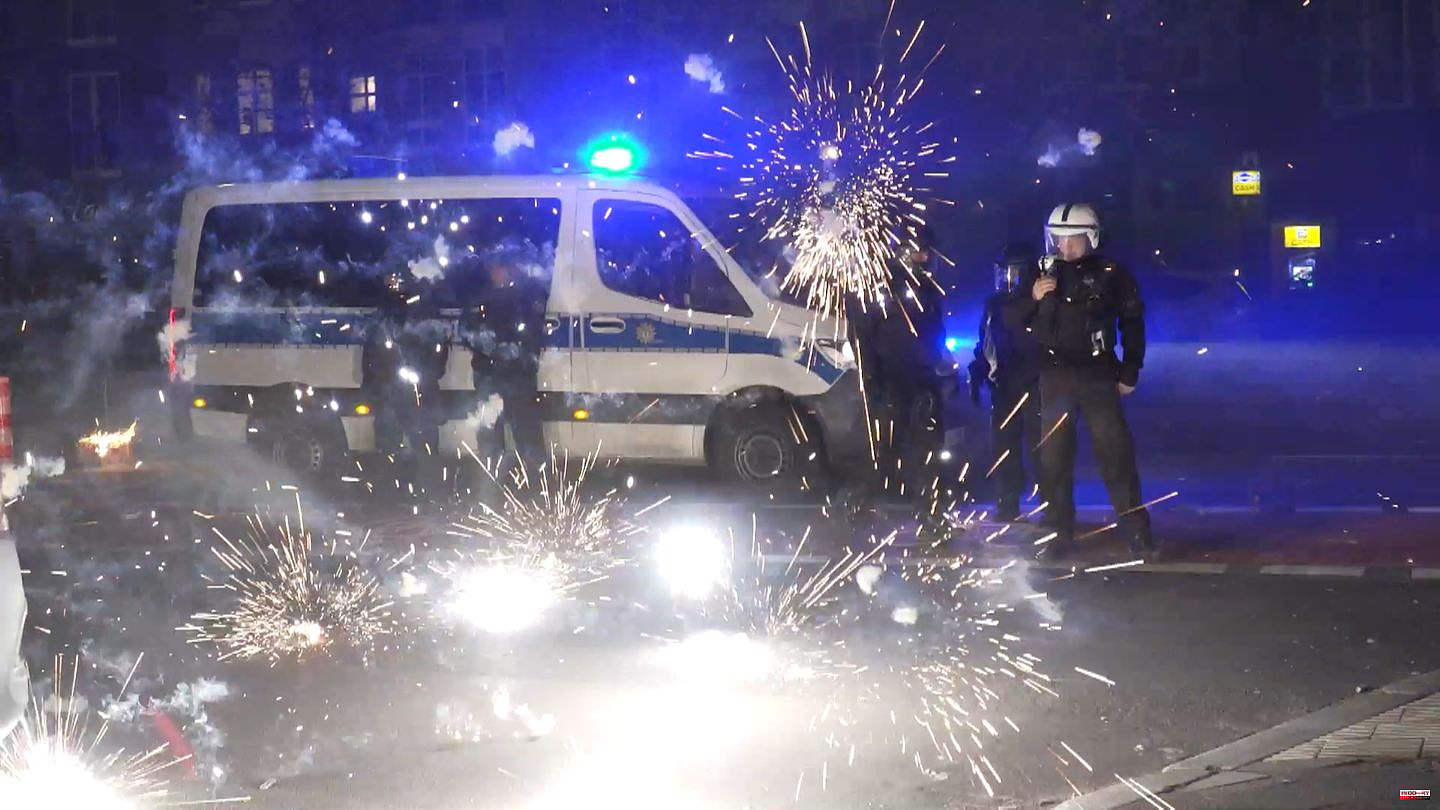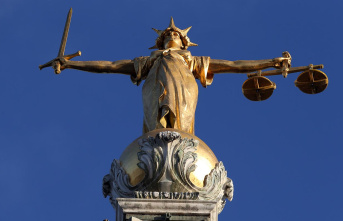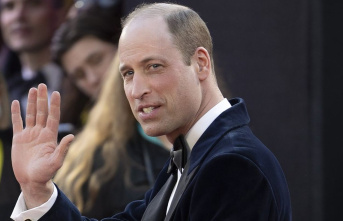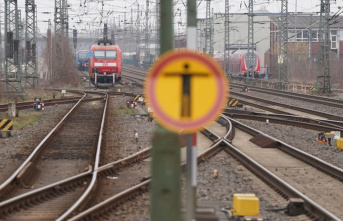Around two weeks before New Year's Eve, politicians and police in Berlin enter the hot phase of operational planning. On Friday afternoon, Interior Senator Iris Spranger (SPD) informed domestic politicians from all parliamentary groups about the preparations for the upcoming New Year's Eve and the measures to prevent further outbreaks of violence. Spranger had previously announced that significantly more police officers would be on duty than a year ago. At that time there were around 1,300 more police officers than on normal nights. Berlin cannot hope for support from other federal states because the police are needed everywhere on New Year's Eve. However, units are expected from the federal police.
Politicians and police are expecting similar events this year to those in 2022. The mood in Arab population groups in Neukölln and Gesundbrunnen, for example, could also have been heated up by the war in Israel and Gaza.
Extensive pre-planning for the upcoming New Year has been underway in the capital for months. A ban on firecrackers for the entire city is not legally possible for the state of Berlin because this is a federal law.
According to media reports, four firecracker ban zones are planned this year: in parts of Neukölln, at Alexanderplatz, in Schöneberger Steinmetzkiez and around the Moabit JVA. The ban applies from December 31st, 6 p.m. to January 1st, 6 a.m. Carrying fireworks is also prohibited in the zones. Private fireworks are also not permitted at the big New Year's Eve party at the Brandenburg Gate.
"Based on a Bremen police ordinance, there will be a ban on firecrackers/rockets in the city center at Schlachte on New Year's Eve (from the Teerhof Bridge to the Mayor Smidt Bridge)," said Bremen's interior authorities in response to a stern query. "There were many dangerous situations there during the New Year's Eve celebrations in previous years in connection with fireworks and large gatherings of people. Violations of the police regulations can be punished with a fine of up to 5,000 euros," it said at the turn of the year 22/23 on the Weser.
A decision is still pending for this year, but the health authority assumes that the regulation from the previous year described above will also apply for the turn of the year 2023/24.
“For the first time since 2016, there will be no extended prohibition zones for pyrotechnics in Dortmund city center on New Year’s Eve 2023,” it says on dortmund.de. The only exception: Because the city is hosting a New Year's Eve party on Friedensplatz, firecrackers are prohibited there.
“Fireworks are prohibited in the immediate vicinity of churches, hospitals, children’s and retirement homes, as well as next to particularly fire-sensitive buildings or facilities,” says a city handout from 2019. It refers to a map on which relevant buildings are marked .
In response to a stern query, it says: "In addition, the public order office of the state capital Dresden currently has no information that would justify fireworks ban zones under explosives law or other legal bases."
In Düsseldorf there has been a ban on firecrackers in the old town since the turn of the year 2016/17. According to the city's announcement, this should also apply at the turn of the year: "Düsseldorf's old town with its narrow streets, the Burgplatz and the Rhine promenade is traditionally a center of attraction for many thousands of people at the turn of the year who want to welcome the New Year there." Before the firecracker ban, many people were injured by falling wooden poles from rockets. The ban “made it possible to drastically reduce injuries caused by fireworks and avoid excessive impacts.”
“As in previous years, the city of Essen has spoken out against a general ban on firecrackers,” writes a press spokeswoman for the city in response to a stern query. "In connection with the burning of fireworks or lighting of firecrackers on New Year's Eve, there are no plans to issue regulatory regulations by the public order office of the city of Essen. The reason for the decision against a general ban on firecrackers is, among other things, the factual and legal situation, as the legal implementation of a "The ban on firecrackers in the entire city or in individual areas presupposes a specific danger situation that does not exist."
In Frankfurt the authorities are not yet as advanced as in other cities. The city wants to announce by Christmas whether and where a ban on firecrackers will be imposed. At the start of this year there was a ban on firecrackers on the Eiserner Steg, a bridge that connects the old town with Sachsenhausen, as well as a ban on weapons at train stations and sections of the railway.
The Hamburg police have issued a ban on firecrackers around the Binnenalster and on the Rathausmarkt in the center of the Hanseatic city, as an interactive map shows. The order applies from December 31, 2023 from 6 p.m. to January 1, 2024, 1 a.m.
“At the turn of the year 2023/24, for the first time in Cologne, there will be a large area in the city center on the left bank of the Rhine where no shooting is allowed,” says stadt-koeln.de. "Between the Rhine and Ringen (including) no pyrotechnic objects with an exclusive banging effect, such as New Year's Eve bangers and firecrackers, may be fired. Firework rockets and other fireworks that are primarily concerned with visibility are not affected by the regulation. Anyone who fires firecrackers despite the ban Fires, must expect a fine of up to 200 euros. The Explosives Act even allows a fine of up to 50,000 euros."
“According to the public order office in Leipzig, no explicit prohibition zones are planned in the city for New Year’s Eve,” writes a city press spokesman in response to a stern query. "However, there is a legal ban on burning pyrotechnics in the vicinity of specially protected buildings in accordance with Section 23 Paragraph 1 1.SprengV, i.e. churches, hospitals, children's and retirement homes. The distances depend on the burned pyrotechnics in each individual case."
"On New Year's Eve, no fireworks may be set off on the (inner-city, ed.) Marienplatz and in the pedestrian zone up to and including Stachus as well as on the Viktualienmarkt," it says on stadt.muenchen.de. "The ban applies from Sunday evening, December 31, 2023, 9 p.m., until Monday morning, January 1, 2024, 2 a.m. The ban is based on a danger forecast from the Munich Police Headquarters. All types and categories of pyrotechnics are affected except, for example, sparklers or firecrackers ( Category F1). Residents are allowed to transport pyrotechnics into their apartment or from their apartment to an area outside the prohibited zone."
Stuttgart has also issued a police ordinance banning firecrackers and prohibiting the “carrying and burning of pyrotechnic objects” in the so-called Cityring of Stuttgart city center – from December 31, 2023, 6 p.m., to January 1, 2024, 3 a.m.












